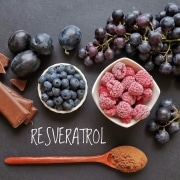How Protein Consumption Boosts Women’s Health Across All Ages

Everybody, without exception, needs protein in their diet. It’s simply a fact of life. That being said, the exact role protein plays in your diet will depend on a variety of factors including age, activity levels, and sex.
Women’s dietary and nutritional needs are different from men’s. And these nutritional needs change over the course of any woman’s life, from childhood and adolescence to pregnancy, menopause, and beyond. In this article, we’ll focus on one nutrient in particular that often gets overlooked when it comes to women’s health: protein.
What is Protein: A Quick Overview
Before we get into the nitty-gritty details, let’s start with a quick overview of what protein actually is. Protein is a macronutrient—a nutrient that your body needs in large quantities—that can be found in both plants and animals.
Your body uses protein for a wide variety of internal functions and processes. You’ve probably heard that proteins are the building blocks for your muscles, enabling your body to build and repair muscle tissue, but they do so much more than that. Whether it’s helping your body metabolize food, transmitting signals between cells, or giving structure to your skin and other tissues, protein is a key player.
Proteins are made up of amino acids, which are the basic building blocks of life. There are 22 known amino acids, and your body needs all of them. Not all protein-rich foods contain all of the amino acids, so it is important to diversify your protein sources or eat complete proteins—foods that do contain all of the amino acids. If you’re looking to deep dive on this subject, don’t worry, we’ve got you covered.
Protein and Women’s Health: From Metabolism to Muscle Mass
For women, protein fulfills many of the same roles as men: it helps strengthen bones, build muscle, and regulate the body’s metabolism. All of these help facilitate a healthy and comfortable life, and they become increasingly important as you age.
Women naturally carry less lean muscle mass than men, but by focusing on consuming plenty of protein, you can help your body build more muscle mass. This can have a number of health benefits, especially later in life. You don’t need to chase that bodybuilder physique—unless of course you want to—but putting on some muscles can help ensure mobility later in life. After menopause, women’s estrogen levels drop, which can lead to an increased risk of bone loss. By eating plenty of protein, engaging in some form of resistance training, and generally staying active, you can help your body prevent bone loss.
How Much Protein Does Your Body Need
Your daily protein consumption should be guided by two factors: your weight and your fitness goals. The recommended daily amount of protein for all healthy adults is currently 0.36 grams of protein per pound of body weight. For the average woman in the United States, this comes out to about 61 grams of protein each day.
This ratio of protein to body weight is the amount required by your body to optimally perform its vital functions. If your goal is to build muscle, you’ll probably want to up your protein consumption substantially. Current research suggests that anywhere from 0.7 grams to 1 gram of protein per pound of body weight may be optimal for building and maintaining muscle mass. For women over 65, that ratio can jump up to 1.3 grams of protein per pound, to offset the decreasing bone density that comes after menopause.
Protein and Pregnancy
During pregnancy, the body may require more protein than it normally does—after all, your body is responsible for the development of a whole other person during this time. The research around this is still somewhat uncertain, but some studies suggest that the body may need around 0.68 grams of protein per pound of body weight during the third trimester of pregnancy. Other researchers believe the number to be much higher and suggest that women consume around 1.5 grams of protein per pound of body weight in the final trimester.
Protein consumption during pregnancy is important not just for the baby’s health, but also the mother’s. During pregnancy, eating plenty of protein can help stave off cravings. Proteins, when eaten in combination with whole grains and complex carbohydrates, can help you feel full and satisfied after a meal. This well-rounded diet will also help maintain consistent blood sugar levels, which may help reduce the risk of gestational diabetes during pregnancy.
Sources and Supplements: How to Have a Protein-Rich Diet
We can go on and on about the benefits of consuming plenty of protein, but there’s still one big question to address: what does a protein-rich diet actually look like? If your mind immediately jumps to the classic bodybuilder meal—plain chicken breast with broccoli—don’t worry, your meals can be a whole lot more flavorful than that.
Protein is found in a wide variety of plant and animal foods. Some of the most common sources of animal protein include:
- Red meat
- Chicken breast and other poultry
- Fish, especially tuna
- Eggs
- Dairy
If you’re looking for plant-based proteins, some of your best options include:
- Tofu and other soy products
- Legumes, such as black beans or chickpeas
- Nuts and seeds
- Quinoa
Under normal circumstances, it is possible to get all of the necessary amino acids from solely plant-based sources with proper meal planning and prep. During pregnancy, however, some nutritionists suggest eating an omnivorous diet of lean animal proteins and plant-based proteins to best equip your body for the nutritional demands of pregnancy.
In addition to dietary protein, protein supplements are also widely available. These supplements are typically derived from soy protein, pea protein, or whey protein and come as a powder that can be added to smoothies or shakes.
At the end of the day, no one source of protein is better than others. It’s all about finding the combination of plant proteins, animal proteins, and supplements that works for you. Getting enough protein can be challenging and, as with many dietary changes, requires diligence and planning—so don’t be too hard on yourself as you take charge of your health.










